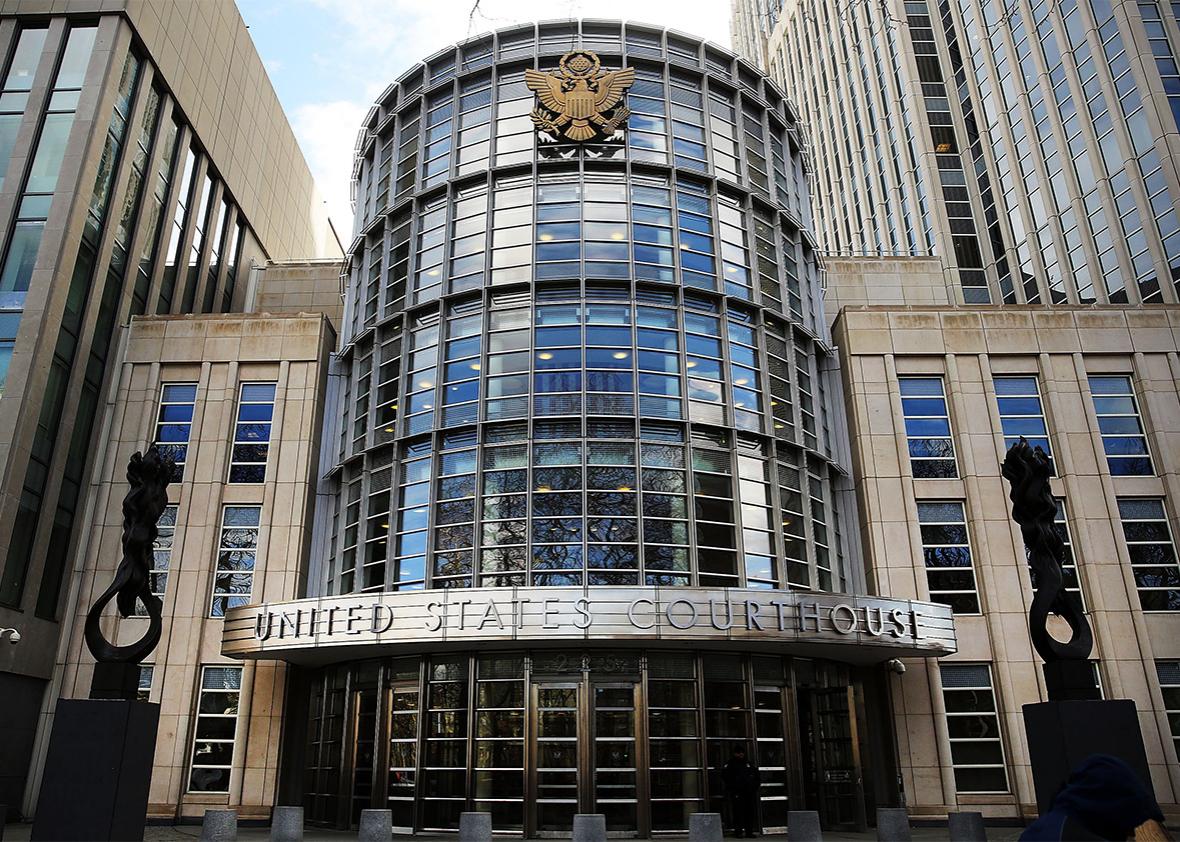Chevelle Nesbeth could have been sentenced to three and a half years in prison for trying to smuggle 602 grams of cocaine into the U.S. from Jamaica. Instead, a federal judge in New York decided to show her mercy, explaining in an unusual decision handed down Wednesday that the multitude of “collateral consequences” that Nesbeth will be subjected to as a convicted felon add up to such a severe punishment that giving her jail time on top of it would be excessive.
The judge, Frederic Block, used his 42-page opinion as an opportunity to call for reform, arguing that federal and state laws that impose restrictions on where people who have been convicted of felonies can work, what kind of financial assistance they can receive from the government, and whether they can vote, drive, or travel represent an unjust imposition of “civil death.”
Quoting extensively from the influential book The New Jim Crow by Michelle Alexander, Block expresses moral indignation throughout the opinion at all the ways in which the American criminal justice system makes it harder for people with felony convictions to achieve stability in life. He writes:
Remarkably, there are nationwide nearly 50,000 federal and state statutes and regulations that impose penalties, disabilities, or disadvantages on convicted felons. … District courts have no discretion to decide whether many of these collateral consequences should apply to particular offenders. The result is a status-based regulatory scheme; by the very fact of an individual’s conviction, he or she is subject to a vast array of restrictions.
Nesbeth, Block emphasizes, has led a mostly law-abiding life, and is hoping to graduate from college next year before embarking on her chosen career as a teacher. Though “there is no question” that she “has been convicted of serious crimes,” or that “her criminal conduct is inexcusable,” Nesbeth should get a second chance, and does not deserve more than the one year of probation, six months of home confinement, and 100 hours of community service that he sentenced her to, he writes.
“[T]he collateral consequences Ms. Nesbeth will suffer, and is likely to suffer … has compelled me to conclude that she has been sufficiently punished, and that jail is not necessary to render a punishment that is sufficient but not greater than necessary to meet the ends of sentencing,” Block writes.
At the end of the opinion, which a law professor described in the New York Times as “the most careful and thorough judicial examination” of collateral consequences he had ever seen, Block argues that when prosecutors, probation officials, and defense lawyers address judges during sentencing, they should feel an obligation to give a thorough and candid accounting of all the ways in which a defendant stands to be crippled by his or her status as a felon. He also calls on Congress and state lawmakers to “determine whether the plethora of post-sentence punishments imposed upon felons is truly warranted, and to take a hard look at whether they do the country more harm than good.”
Block, who has been a federal judge since Bill Clinton appointed him to the Eastern New York district court in 1994, did not say in his opinion whether his beliefs about collateral consequences have ever guided him in the past, or how they will inform his decisions going forward. He was careful, however, to note that each case should be “separately considered,” and that the balancing of all factors “may certainly warrant prison—and even significant prison time—for someone else under different circumstances.”
In a 2012 interview about his memoir, Disrobed, Block told the New York Daily News that he was “at the DGS stage of life: Don’t give a shit.” In the interview, which was cited by the New York Post last year when Block controversially tossed out a gun charge against a man who had been previously convicted of attempted murder, Block added, “I don’t care what any of you say. I feel freed up to do what I really feel is the right thing.”
